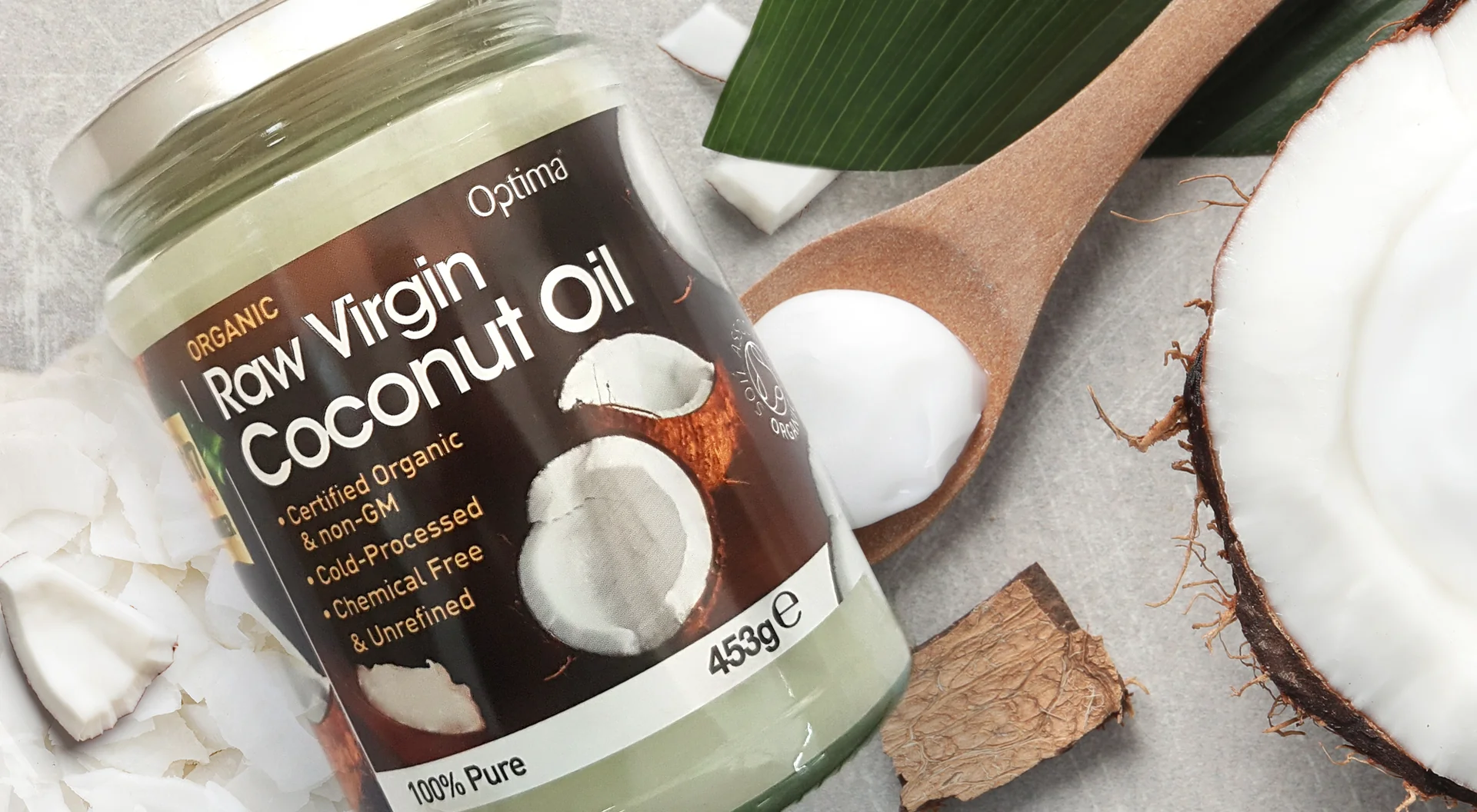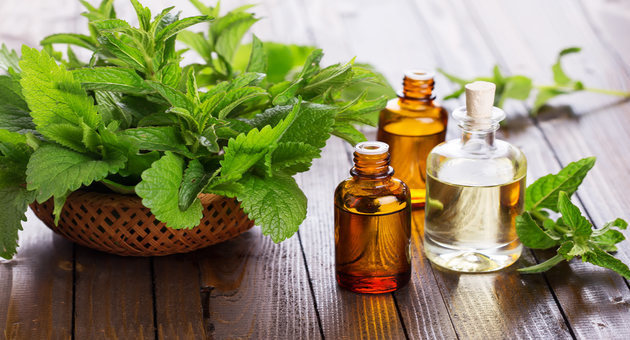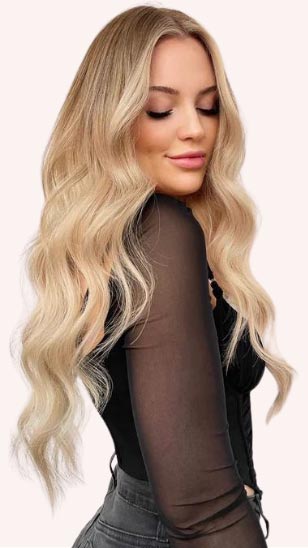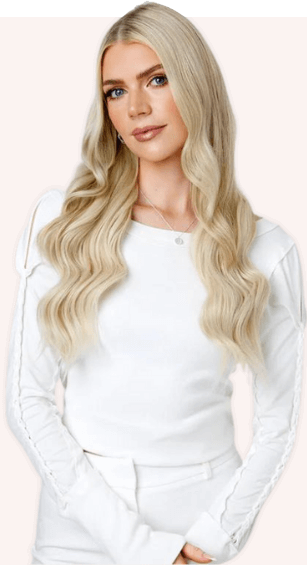It can be very frustrating to have an itchy scalp, especially if scratching yourself only makes the itching worse. Most often, mistakes we make in our hair care routine or harsh products that irritate the skin are to blame for scalp irritation. Once you identify the root cause and make some changes, these issues are simple to resolve. As a result, we have compiled some of the primary offenders as well as a few solutions to help.
I. Why Is My Scalp So Itchy?
Itchy Scalp Cause #1: Dandruff

The most common cause of an itchy scalp is seborrheic dermatitis, better known as dandruff. Dandruff is really common and caused by the skin on your scalp shedding and replacing itself too quickly. This can leave your scalp irritated and your hair greasy so it’s important to switch up your hair products when you see it happening.
Itchy Scalp Cause #2: Product Build-Up

Regular use of stronghold hairsprays or dry shampoo may leave a stubborn layer of residue on your hair that irritates your scalp. Sometimes the residue is mistaken for dandruff when it is actually just an excess product that hasn’t been cleaned up.
Cause #3: Scalp Psoriasis
According to the Indian Academy of Dermatology, approximately 50% of patients with plaque psoriasis have experienced scalp inflammation at some point. If you have psoriasis on your scalp, you may have red patches, silvery-white scales, dandruff-like scales, and a dry scalp. Scalp psoriasis is usually itchy, ranging from mild to severe. Temporary hair loss can be brought on by vigorous scratching and picking at flake spots.
Cause #4: Head Lice

An itchy scalp is the most common symptom of head lice. If you suspect that head lice are causing the itch, ask someone to closely examine your scalp and hair for signs of these tiny bugs.
Itchy Scalp Cause #5: Allergic Reactions To Hair Care Products:
An itchy, dry, and flaky scalp could be telling you that you need to do a better job of rinsing the shampoo from your hair. Leaving some shampoo on your scalp can irritate it.
You might have an ailment called allergic contact dermatitis if you have a rash and an itchy scalp. This happens frequently to those who dye their hair. You might also be allergic to any shampoo, conditioner, or other items that come in contact with your scalp. If that’s the case, you’ll likely have an itchy rash on your scalp and any other skin that the product touches.
II. What Are The Symptoms Of An Itchy Scalp?
An itchy scalp can feel tingly or painful. Scratching or itching your scalp may help you feel better, or it could cause pain.
Symptoms that can accompany scalp itching include:
- Bald patches
- Dry skin
- Irritated skin
- Low-grade fever
- Pus-filled sores
- Redness
- Scales or patches on the scalp
- Scalp swelling
- Sores on the scalp
III. How’s An Itchy Scalp Treated?
Your itchy scalp’s treatment will depend on what’s causing it. For instance, dandruff is treated with regular hair washing and topical medications. Each scalp treatment has a different mechanism of action, such as reducing oil on the scalp or killing fungus.
Head lice need medical attention, including pediculicide hair washing or lice-killing medication. A fine-tooth comb can remove lice eggs (nits) while the medication kills active lice.
People who share a home may also require preventive care in addition to these treatments. It is necessary to wash or dry clean all clothing, bedding, and towels that came into contact with the infected person at a temperature higher than 130°F.
If an allergic reaction is the cause of your itchy scalp, you should stop using the offending product and, if the reaction is severe, consult a doctor.
There are many additional reasons for the itchy scalp that are not mentioned here. Having a medical expert examine your scalp is the best way to determine what is causing your itchy scalp.
IV. How Can I Prevent An Itchy Scalp?
- By regularly washing your hair to remove built-up oils, you can lessen your risk of developing an itchy scalp. To prevent irritating and drying out the scalp, wash your hair in warm water after shampooing, but not too hot. The best way to beat this is by using a clarifying shampoo like Oribe The Cleanse Clarifying Shampoo or exfoliator once a week or that is strong enough to remove the product.
- To reduce allergic reactions, try to avoid using products that contain: dyes, and fragrances.
- Avoid physical contact with people with head lice to prevent the spreading of lice. This includes refraining from sharing: combs, brushes, hats, towels, helmets, and pillowcases.
V. 4 Home Remedies for Itchy Scalp
Home remedies for itchiness on the scalp include coconut oil, an apple cider vinegar rinse, peppermint oil, and medicated dandruff shampoos. If the itching doesn’t improve or you notice sores on your scalp, a doctor can recommend medical treatments.
1. Apple Cider Vinegar

Apple cider vinegar has antibacterial, anti-inflammatory, and antifungal properties. It can help reduce itching caused by dry skin. Try diluting apple cider vinegar in warm water and using it as a rinse after shampooing to alleviate dandruff and an itchy scalp.
2. Organic Coconut Oil

Organic coconut oil is naturally extracted from mature coconuts. It contains lauric acid, a saturated fat that has antimicrobial properties. Lauric acid helps the skin absorb coconut oil efficiently. This makes it a soothing treatment for an itchy scalp.
3. Peppermint Oil

Peppermint oil may be effective at reducing dandruff and soothing the scalp, calming down the itch. Try diluting it with another oil, such as olive oil, and massaging it into the scalp before shampooing. You can also use peppermint tea as a rinse after shampooing.
4. Tea Tree Oil

An essential oil available at health food stores, tea tree oil has antimicrobial, antifungal, and antiseptic properties. It also has anti-inflammatory effects. Tea tree oil can be irritating to the skin, so it’s important to use it sparingly or dilute it prior to use. Try adding 10 to 20 drops of tea tree oil to a gentle shampoo or mix it with olive oil and massage it directly into your scalp. Tea tree oil can help reduce or eliminate itching associated with dandruff, seborrheic dermatitis, and head lice.


 BEST SELLING PRODUCTS
BEST SELLING PRODUCTS Wig Hair
Wig Hair WHOLESALE
WHOLESALE Contact us
Contact us Sale Events
Sale Events
